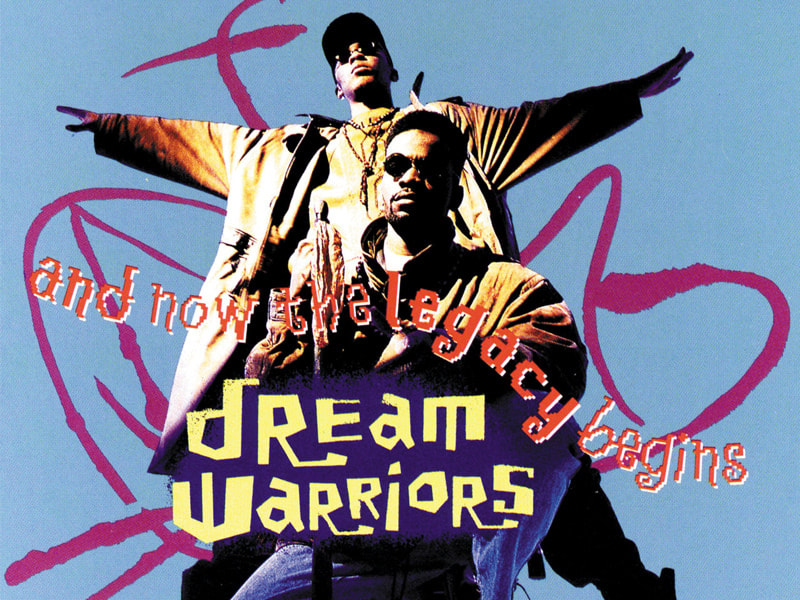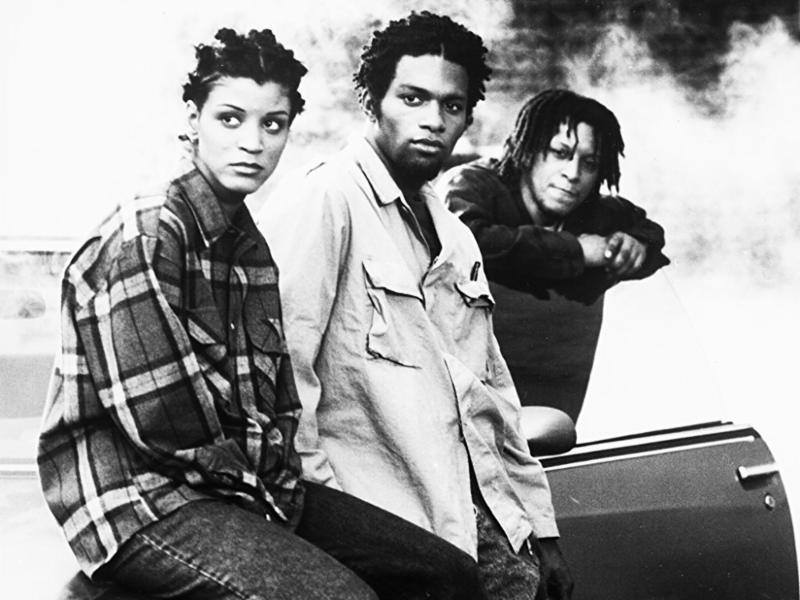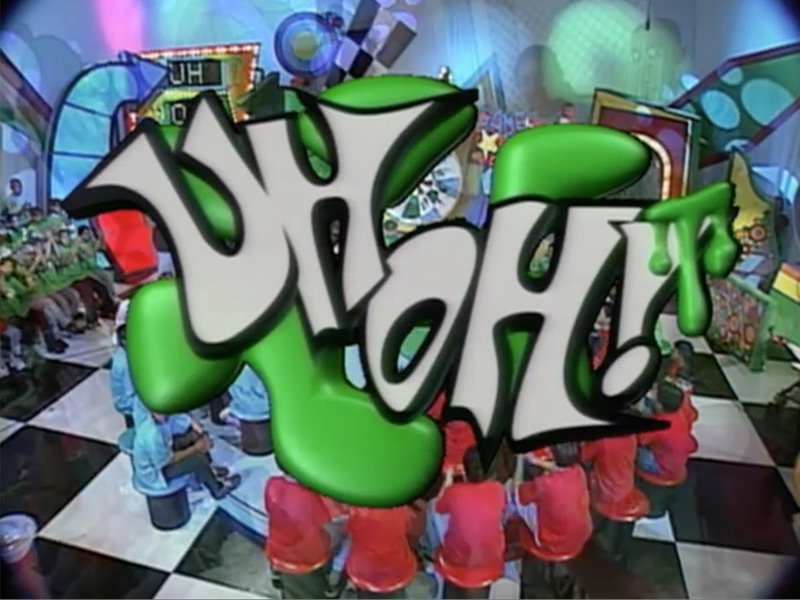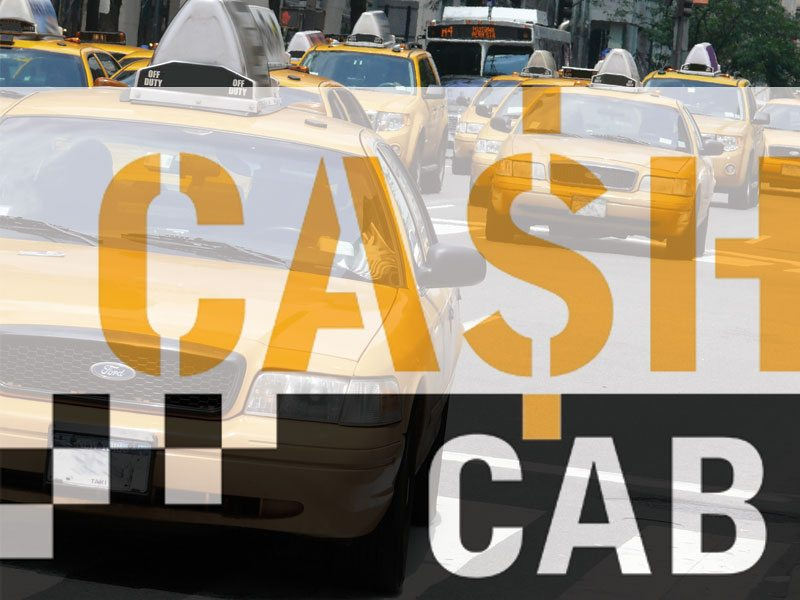|
By Danny Sheahan Transcribed by Joseph Lopez With 20 years of experience in the music business, Richard takes us on a journey through how his musical career came to be - from purchasing his first Casio keyboard, to working with Dream Warriors, to producing theme music for TV shows and more. In this Northern Touch interview Correspondent Danny Sheahan speaks with Richard Rodwell, a veteran in the music business and former co-owner of Beat Factory Productions Inc. Danny: At the beginning of your career, you were the co-owner of Beat Factory Productions. Can you tell us a little bit more about that, for those listening who don’t know what that is? Richard: Well, let me take you to before Beat Factory. There is guy named Lennox Grant, people have to know his name - because Lennox Grant basically got me into electronic music. I knew nothing about it. Lennox and I met in high school and one day, there was this cool guy walking down the hall with this Casio keyboard. He was playing it and I was like: “That’s really cool! I like music too!” And basically then I went out and bought a Casio keyboard. We were going around the halls in school, making these beats on these Casio keyboards and playing these things, and people would be following us down the halls saying: “Oh this is so cool!” And then along came a guy named Ivan Berry. Ivan Berry was at the same high school as us, Dunbarton High School in Pickering, Ontario. © beatfactorytv | YouTube Ivan was like: “You guys are great man! I could get you gigs! I work at the roller skating rink in Ajax!” And that’s basically how it all started. Lennox and I started a group called Traffic Jam and we collected keyboards. We had like six or seven keyboards each, and these risers and stacks, and we’d go around playing and Ivan got us these local gigs at roller skating rinks and those types of places. Then it just sort of grew from that, and then people were like: “You guys need a singer” because it was just me and Lennox doing these instrumental gigs. That’s how Rupert Gail came into the mix, because he was a singer, and then that’s basically how Beat Factory formed. Lennox actually created the name and the art work for Beat Factory. Then Ivan came to us one day and said: “There’s this guy named Louie, he’s just the most amazing guy, you’ve got to meet him!” which is Louie from Dream Warriors. We met him and he was just a brilliant, fascinating individual, and that’s kind of how it all started from there. © The Keep It Weird Project | YouTube Danny: You mentioned the Dream Warriors. Let’s talk about them a little bit. Their first album, And Now The Legacy Begins, which has you listed as a co-producer, was a big success at the time. Many people consider it to be a staple in Canadian Hip-Hop history. Can you attest to the group’s influence on the landscape of Canadian Hip-Hop throughout the years after? Richard: The Dream Warriors were really the first ones to go international. The Jazz influence came from England. Basically, we had just done some songs, a couple of songs within ourselves, and Louie would always come into the studio and say: “You’ve got to sample this, man,” And I’d be like: “What? That’s crazy,” and he’d say “No, no, just do it, man” and I would tell him “No, no, this is a crazy idea,” We put this stuff together, and then basically what happened is we sent it off to England. And England was like: “Oh my Gosh, this is crazy. Ok, number one, we are going to sign you. Number two, finish an album immediately.” And so, basically, England had sent us a bunch of records and samples. And then that’s how the whole Jazz, sort of, influence came into it. It was definitely the first of its kind. Everything was hardcore rap back then, and we were coming from a different perspective. Some people were like: “Hmm, what is this?” But Europe got it right away. And after that, that’s how Digable Planets and all these other groups started coming. Danny: Richard, can you take us through what role did play in co-producing the Dream Warriors’ first album? Richard: Basically, Louie and a couple of other guys he was riding with at the time, would bring raw samples. So, they would bring in cassettes and they’d say: “Okay, hey, sample this thing.” And we looped it, then I would sort of polish it. I would say: “Okay, let’s add this bassline,” because I’m a piano player, I’m a keyboard player. They sampled it and said: “Ok, why don’t we reverse this little part, then why don’t I add this little bassline here.” I was the programmer. I did all of the live playing, the computer programming, the recording of the vocals, the mixing of the vocals. Everything. That’s all me. I did all of that. I think Ron Nelson did a couple of tracks on the album. Out of the album, I think he did two tracks and I did everything else. © Digable Planets | YouTube Danny: Now on your website, RichardRodwell.com. You’ve listed a large number of credits for composing for television. You’ve contributed music to shows like Cash Cab, and anime kid shows like, Beyblade and Card Captors. But what I find the most interesting is that you wrote and performed the theme music for the YTV game show, Uh oh. A show I used to watch a lot when I was younger, so it holds a nostalgia quality to me. Can you tell me what working that experience was like for you? Richard: You know, I’ve so many different lifetimes in music, literally. Because I can talk to people about the Dream Warriors from a certain age group, who will say: “Oh yeah, yeah, of course, I remember…” But then I’ll say: “Well, hey, I also did Uh Oh,” which was a different age group. So Uh Oh is anybody between 23 to 30-ish area, right? And then I can also talk about Cash Cab which was something different. Let me tell you how the whole TV thing started. © Hadiuscz Hadik | YouTube Richard: Beat Factory used to be in Ron Nelson’s basement. We used to record there and I had the studio there. So we were working on tracks, and then somebody from YTV had called. A gentleman by the name of Josh Morris. He was doing a show and he wanted to do an interview on the Dream Warriors. He called us up with his producer, a gentleman by the name of Rick Watts, who was also the executive producer at YTV at some point. Josh had called us up, and said: “Hey, we want to come over and do this interview on the Dream Warriors”. They come down the stairs with TV cameras, everybody’s all crammed in this tiny little room in Ron’s basement doing this interview. And after the interview, Rick said to me: “Hey, have you ever thought about composing music for television?” I’m like: “What?” Because here I am thinking that the only way to make money in the music industry is to go and perform on stage. “Hey, have you ever thought about composing music for television?” I’m like: “What?” Because here I am thinking that the only way to make money in the music industry is to go and perform on stage. But when he said that, I’m like: “No. Music for TV? What do you mean?” He says: “Well, you know, I’m coming out with a new show called It’s Alive,” I don’t know if you remember It’s Alive. Uh Oh, the game show, was a little spin-off comedy piece in It’s Alive. So It’s Alive was the original show I got involved with, and then I did the opening scene for that. Within It’s Alive, there was a little skit called, Uh Oh. It was just a little five-minute skit, and people just loved it and then it took off into a game show. Rick says to me: “Well, I’m doing this show called It’s Alive, and I really like for you to try out for the opening scene.” And I said, “What’s an opening scene?” I had no idea. So he’s like: “Well, it’s this little act, you’ve got to compose something for thirty seconds.” “Thirty seconds? Wait a minute, thirty seconds?” I was doing tracks that were four to four and a half minutes. Thirty seconds? He’s like: “Yeah, that’s all you got to do.” So then I said: “Okay, sure.” But I didn’t really want to do it, but he’s like: “Come on, try it,” And I’m like: “Okay, why not?” So I did this theme and I remembered wanting to make it really kind of, dark. This kind of horror thing. I gave it to him, and he’s like: “This is amazing!” So anyways they decided: “Yeah, we’re going to get you to do the opening scene for It’s Alive,.” And then all of a sudden, YTV started giving me all these other gigs. “OK, we have this new show called, Alpha to Omega, can you do that?” I said: “Sure, yeah,” Then: “Hey, we got this new show called Warped, can you do that?” I said: “Oh Sure.” I was just cranking out all these opening themes and then the first time I got paid, I’m like: “Wait a minute? I get money for this?” And so, that was when I was like this is pretty cool, you get paid upfront to do it and then you also make royalties. This thing called royalties, which I didn’t know about. I was like: “Oh, this is great.” And so, I got heavily into that. Richard: (On making the theme for Uh Oh) With Uh Oh, Rick came to me and said: “We need this theme for Uh Oh.” And so, here’s an interesting story. I came up with the theme, the show wasn’t even green-lit yet. They didn’t even have the green light. Once they heard the theme, they were like: “Ok, number one, yes, the show is a green light. And we are going to create the animation and the whole set. We’re going to build the whole set design around your theme.” So that’s why the show looks so tight. The whole vibe of the show was created based on the music. Which, even today, is even kind of mind-blowing for me. And that’s how I really got into it. And then, Rick went from company to company, and every time he’d go to a company, he’d call me. He’d say: “Hey, there’s a new show coming out. Want to try out for this?” So I did a show called Designed to Win, did the opening scene for that. And then he was on this other production company, and he’s like: “Well, there’s this show called Cash Cab coming out.” and I’m like: “Oh, sounds pretty cool.” and he says: “You should try out for it, it’s going to be good.” I tried out for it for Cash Cab, and again, funny story. They’re like: “Well, we’re looking for a Lenny Kravitz meets – you know, something with a sitar in it.” And I’m like: “Okay,” cause they really don’t know. So I gave the first theme, they go: “No, no, can you change it up a bit?” Gave them another theme, and they said “Well, that’s really good…” So I gave them about four or five themes, and then they’re like: “Can you chan-,” then I’m like: “Ok, that’s it, I’m done. You know what I’m going to do? I’m going to take my equipment down there, and I am going to create something for you on the spot.” And that’s exactly what I did. I took my computer, my keyboards a couple of speakers. I went down there and set it up. They’re like: “Wow, this is so cool.” And then I’m like: “Okay, what do you guys want?” “Well, can you do some rock?” So I pulled up a little beat, then put in some guitars, and they go: “Oh this is amazing! This is really cool.” And then I had packed my stuff up and left the office, then two days later, they sent me an email saying: “Hey, we just wanted to advise you that you have been selected to do the theme music for Cash Cab.” and I was like: “Yes!”
For more information on Rodwell's work, visit his website. |
Recent PostsCategories
All
Archives
December 2021
|
|
GET THE APP!
Listen to VIBE 105 anywhere you go!
|
OUR STATION
|
TUNE IN RADIO
|
STAY CONNECTED
|
Copyright © 2021 Canadian Centre for Civic Media and Arts Development Inc. Except where otherwise noted, presentation of content on this site is protected by copyright law and redistribution without consent or written permission of the sponsor is strictly prohibited.








